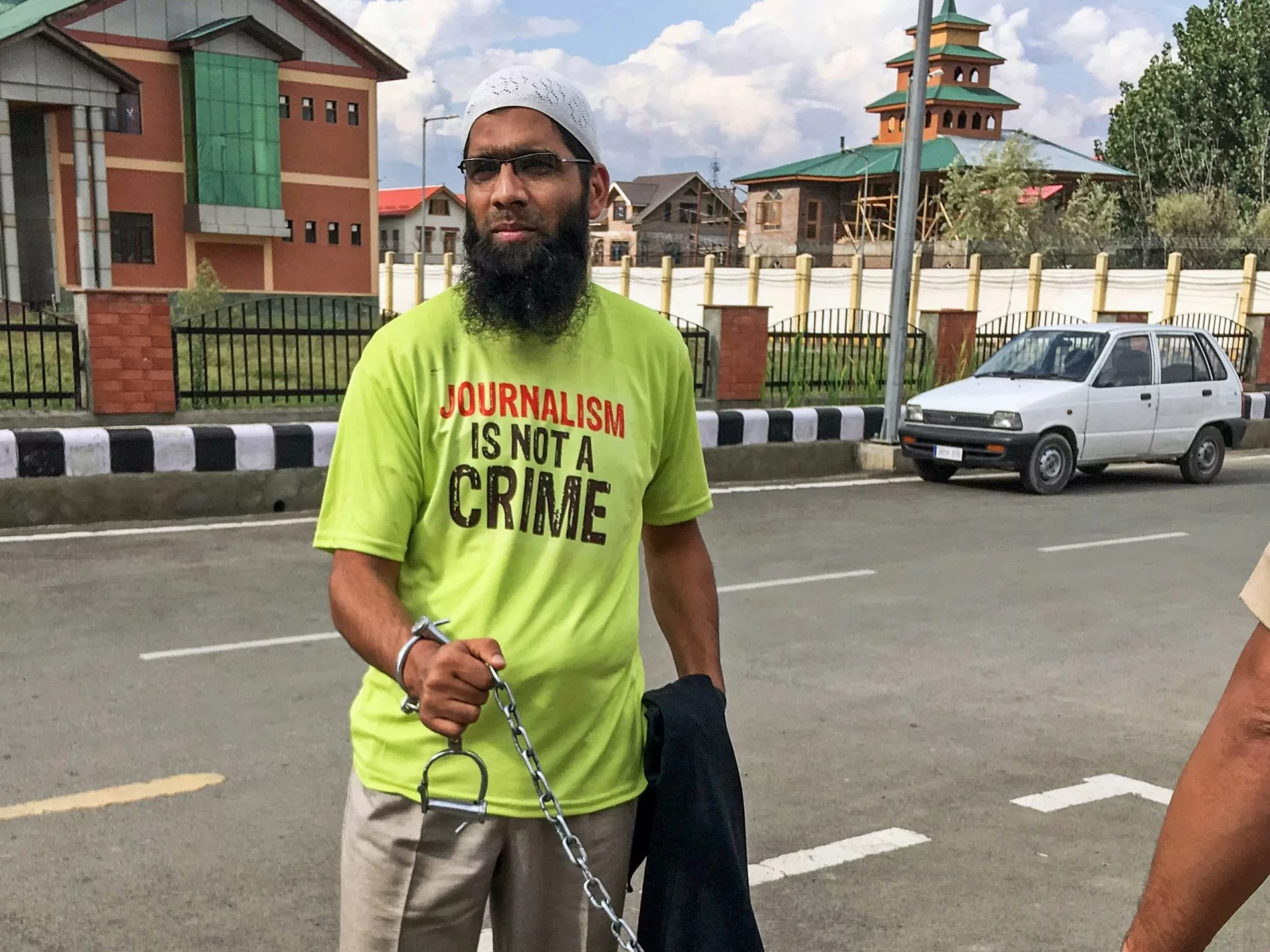Aasif Sultan, a former editor of Kashmir Narrator magazine, has been re-arrested under ‘anti-terror’ law days, two days after his release following five years in jail.
Aasif Sultan, 36, has been sent to a five-day police remand after he was produced in a court in the city of Srinagar on Friday, Adil Abdullah Pandit, Sultan’s lawyer, told Al Jazeera.
Pandit said that Sultan was arrested on Thursday in a 2019 case regarding violence inside the central jail in Srinagar under the Unlawful Activities Prevention Act (UAPA), which international rights groups have described as a “draconian” law. Srinagar is the largest city and summer capital of Indian-administered Kashmir.
Rights activists have said getting bail under a UAPA case is nearly impossible, which means Sultan could stay in jail without trial indefinitely.
The case is related to “the sections of rioting, unlawful assembly, endangering human life, attempt to murder under Indian Penal Code (IPC) and section 13 of UAPA for advocating, abetting or inciting unlawful activity”, according to the lawyer.
At the time of the violence, Sultan was already lodged in jail. The riots inside the jail had erupted over a move by authorities to shift prisoners to jails outside Indian-administered Kashmir. Hundreds of Kashmiris have been lodged in jails in other parts of India, making it difficult for families to meet their relatives.
‘Harbouring militants’
Sultan worked as an assistant editor for a Srinagar-based English magazine, Kashmir Narrator, which is now defunct, when he was arrested in September 2018 on allegations of “harbouring militants”.
His family has denied the allegations, saying he was being targeted for his work as a journalist.
On February 27 he was released from a jail in the northern Indian state of Uttar Pradesh about 1,400km (870 miles) away.
But the brief joy for his family in Batamaloo locality in Srinagar turned into grief on Thursday when Sultan was re-arrested.
“He saw his five-and-half-year-old daughter for the first time since his 2018 arrest. His daughter is asking about him and we don’t know how long this fight can be,” one of Sultan’s relatives told Al Jazeera on the conditions of anonymity, referring to the difficulty in securing bail under the UAPA.
“He looked very weak and wanted to rest. His blood pressure was also unstable. When we asked the police, they said he was accused in another case.”
Sultan was able to secure bail in the 2018 case in April 2022, when a court said that investigation agencies had failed to establish his links with any armed group. There has been an armed rebellion in Kashmir against Indian rule since the 1980s.
But authorities immediately charged him under the Public Safety Act (PSA), a law under which a person can be jailed for up to two years, without a trial. Amnesty International has termed it a “lawless law”.
Sultan’s release on Tuesday came more than two months after the Jammu and Kashmir High Court quashed his detention order under the PSA.
Laxmi Murthy, co-founder of Free Speech Collective, an organisation that advocates freedom of expression, said, “The re-arrest of Aasif Sultan is another example of ‘lawfare’ or the (mis)use and overuse of draconian laws to harass journalists.”
“Since the process is punishment, Aasif Sultan will have to spend the next few years of his life proving his innocence.”
Since India scrapped Kashmir’s special status in 2019 and imposed central rule, authorities have cracked down on free speech under which multiple journalists and activists have been arrested — mostly under “anti-terror” laws such as the UAPA.
